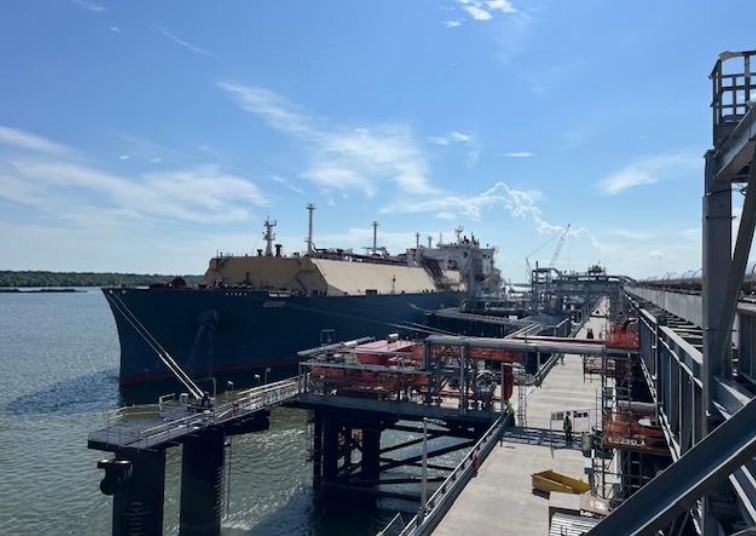This story requires a subscription
This includes a single user license.
The 174,000-cbm LNG carrier was on Tuesday located at the LNG plant along the Mississippi River, according to its AIS data provided by VesselsValue.
Venture Bayou appears to be empty.
This LNG carrier and its sister vessel Venture Gator recently delivered their first cargoes from Venture Global’s Calcasieu plant in Louisiana to Germany.
These are the first two of nine LNG carriers Venture Global has on order in South Korea.
Venture Bayou could be taking the first LNG cargo produced at the Plaquemines LNG plant.
Prior to this vessel, the Plaquemines LNG facility received a cool-down cargo in August onboard the 2020-built 174,000-cbm, Qogir.
According to a recent FERC filing, Plaquemines LNG has now fulfilled the environmental conditions which were necessary prior to the introduction of gas/MR/CNG/LNG to liquefaction train system block 1.
“Plaquemines LNG requests written authorization from the Director of the Office of Energy Projects (OEP) and a notice to proceed with activities associated with the scope of work described in this volume no later than November 15, 2024,” the firm said in the filing.
In August, Venture Global secured approval to commission the liquefaction train system block 1 with nitrogen.
The FERC granted the commissioning of the liquefaction train system block 4 with nitrogen last month, block 3 on September 30, and block 2 on September 10.
Most recently, Venture Global won approval to commission block 5 with nitrogen, a filing dated November 12 shows.
Venture Global took a final investment decision in May 2022 on the first phase of the Plaquemines project with a capacity of 13.3 mtpa and the related pipeline. It also secured $13.2 billion in project financing.
In March last year, the company sanctioned the second phase of the Plaquemines LNG export plant in Louisiana and also secured $7.8 billion in project financing.
The full project, including the second stage, will have a capacity of 20 mtpa coming from 36 modular units, configured in 18 blocks.
Each train has a capacity of 0.626 mtpa.

